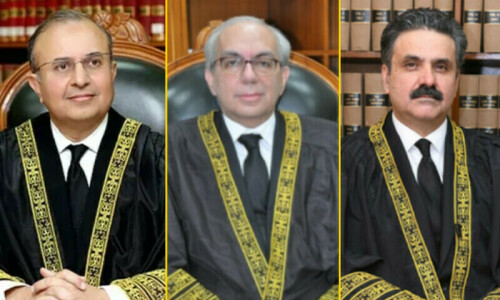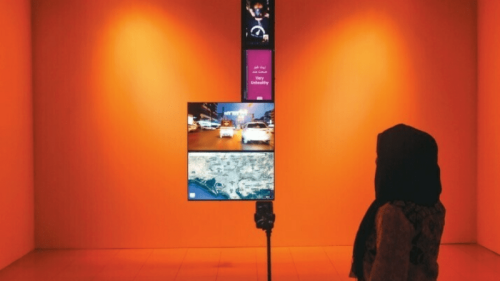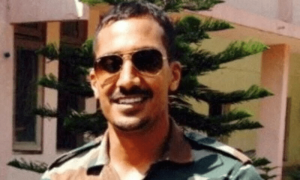Washington, Kabul publicly disagree over talks with Taliban

WASHINGTON: Differences between the US and Afghan governments over the peace talks became public this week after a senior Afghan official criticised Washington for talking to the Taliban while the Trump administration summoned him to the State Department to convey its displeasure.
“Under Secretary for Political Affairs David Hale summoned Afghan National Security Adviser Hamdullah Mohib today to reject the public comments attributed to Mr Mohib criticising the US approach to reconciliation,” State Department deputy spokesman Robert Palladino said after the meeting between the two officials.
On Thursday, Mr Mohib blasted US Special Representative Zalmay Khalilzad, accusing him of weakening the Afghan government so that he could become Afghanistan’s viceroy. He also said that holding talks with the Taliban amounted to dishonouring the 9/11 victims and hundreds of US troops who lost their lives.
It is rare that a senior visiting official of another government is summoned by the US State Department in this manner. US media reports claimed that US National Security Adviser John Bolton also refused to meet his Afghan counterpart because of his remarks to the media.
At the State Department, Mr Mohib was informed that his remarks could hurt the efforts to restore peace to the war-ravaged country.
The fifth round of peace talks between US and Taliban delegations ended in Doha, Qatar, this week with both sides agreeing to meet again to sort out their differences.
Mr Khalilzad, who led the US team in Doha, said the talks focused on four key points: “counter-terrorism assurances, troop withdrawal, intra-Afghan dialogue, and a comprehensive ceasefire”. While there seems to be an understanding on the first two points, the Taliban are refusing to hold talks with the Afghan government and appear reluctant to enforce a comprehensive ceasefire.
Published in Dawn, March 16th, 2019














































